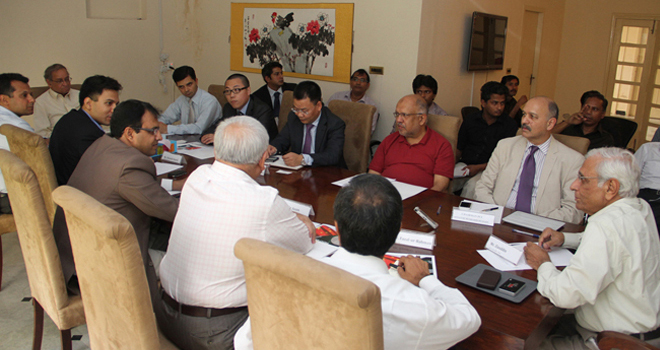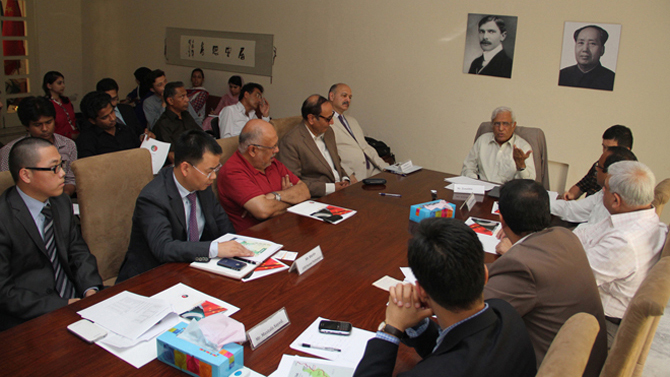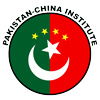PCI holds roundtable conference on economic cooperation
Date : July 22, 2013
 |
Pakistan-China Institute hosted a conference on 17th July, to discuss economic cooperation between Pakistan and China. The meeting was chaired by Mr. M. Ziauddin, Editor in Chief of Express tribune, and was attended by both national and Chinese representatives of think tanks, media and academia. The round table was arranged by PCI in a bid to foster and develop an understanding of Pakistan-China economic cooperation, and to deliberate on new avenues to develop this economic relationship.
Executive Director PCI, Mustafa Hyder Sayed welcomed the guests and commenced the meeting by briefly mentioning the accomplishments of PCI and highlighted the need for strong economic cooperation between Pakistan and China. Mr. Ziauddin referred to the developments in Pak-China relations as a good omen, in that both countries are willing to deepen the ties through cooperation in the Pakistan economic and energy sector, which has previously been military oriented.
The first speaker, Mr Fazal-ur Rehman, Director SSII briefed the guests regarding the special economic zones, and China’s experience in this regard. He discussed the strategic importance of Kashgar as an economic zone. China had made an initial investment of 1.5 billion dollars with the aim to develop Kashgar not only into a financial, but also cultural hub, thus emphasising the multidimensional nature of the Kashgar initiative. He said that Pakistan should try to persuade China to invest more in Pakistan and that both countries should bridge the information gap between each other. Furthermore, he stated that there is a strong need of a separate industrial policy that both countries should follow, which will help in streamlining their economic ties. He also mentioned that China is committed to linking Kashgar with Gwadar.
Representing the Chinese business community in Pakistan was Mr Martin, the COO of Huawei, who discussed the challenges that the Chinese companies encountered in Pakistan. He especially underscored the problem of the growing law and order situation, which has become one of the prime reasons that keeps Chinese investors and workers at bay in Pakistan and causes major impediments to delivering effective outcomes. He said that the challenges for Chinese investors in Pakistan were in the shape of high tariffs, taxes, and inflation that have consequently affected the Chinese investment in Pakistan.

Mr Amir Azam spoke of the opening of another Pakistan-China Institute office in Shenzhen, stating that the purpose was to increase co-operation in the technology sector. Continuing the dialogue, Chairman Pakistan China Institute, Senator Mushahid Hussain accentuated the problems that hindered economic cooperation between the two countries. He stressed that bureaucratic red tape was one of the main problems, quoting the cases of Thar coal project and Nandipur power project. With respect to the regional context, he added that a greater South Asia was emerging. He elucidated this by giving the example of the plan of a rail link from Kunming to Rangoon to Chittagong. He stated that since the regional dynamics were changing, Pakistan was in a beneficial position as the new order in the region was economic oriented and driven by energy.
The floor then opened for discussion and comments. Former Ambassador Ali Sarwar Naqvi stated that the Pak-China relationship was irrespective of the governments in power. He believed that Pakistan is one of the few countries that possess an extensive peaceful nuclear program whose application in the future for the sake of medicine, agriculture and energy is inevitable. He applauded China’s support to Pakistan throughout its hunt for nuclear program. Moreover, he praised the role of PCI for taking initiatives to extend the level of cooperation in economy and energy.
As the discussion progressed, one of major emerging themes was that of the imbalance of trade between Pakistan and China, as Mr. Mustafa Hyder, the Executive Director pointed out that the figures lagged far behind the rhetoric of cooperation, and that cooperation did not translate into higher GDP or HDI for either country. He emphasised that both countries had made a tangible effort to bridge the gap in economic and defence cooperation. Mr. Ziauddin said that the list of Pakistani exports is painfully narrow, limited mainly to primary products, whereas China exports mainly machinery, which has resulted in widening the imbalance in trade.
The roundtable ended with some recommendations, the foremost of which was to revitalize the Pak-China Friendship Centre and Group Captain Haali proposed the establishment of a Pak-China Investment Fund, which would help in aid cooperation. While concluding the roundtable discussion, Mr Ziauddin said that Pakistan and China should commercialize and institutionalize the nature of their relationship and create a concrete economic oriented partnership.
